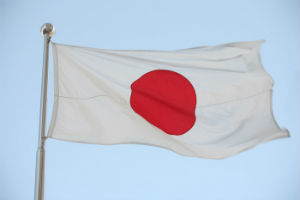Vaishakh Shukla 9, Kaliyug Varsha 5114
 |
1. Japan has put strict restrictions on the Islam and Muslims !
Have you ever read in the news paper that a political leader or a Prime Minister from an Islamic nation have ever visited Japan? Have you ever come across any news paper that King of Iran or Saudi Arabia has visited Japan?
The reasons are:
a) Japan is the only nation that does not give citizenship to Muslims.
b) In Japan permanent residentship is not given to Muslims.
c) There is strong ban on the propagation of Islam in Japan.
d) In the University of Japan Arabic or any Islamic language is not taught.
e) One cannot import ‘Kuran’ published in Arabic language.
f) According to data published by Japanese government, it has given citizenship to only 2 lakhs Muslims. These Muslims speak Japanese and carry their religious ritual in the same.
g) Japan is the only country in the world having negligible number of embassies of Islamic countries.
h) Japanese people are not attracted to Islam at all.
i) Muslims residing in Japan are the employees of foreign companies.
j) Even today Visas are not granted to Muslim doctors, engineers or managers send by foreign company.
k) In majority of the companies, it is stated in their laws that no Muslims should apply for the job.
l) Japan government is of an opinion that Muslims are fundamentalist and even in the era of globalization, they are not willing to change their Muslim laws.
m) Muslims can not even think about getting a rented house in Japan.
n) If anyone comes to know that his neighbor is a Muslim then the whole colony stays alert.
o) No one can start a Islamic or Arabic ‘Madarsa’ in Japan
p) There is no personal law in Japan.
q) If Japanese women marry a Muslim then she is banned.
r) According to Mr. Komico Yagi (Head of Department, Tokyo University) “There is a mind frame in Japan that Islam is narrow minded religion and one should stay away from it.”
s) Freelance journalist Mohammd Juber turned many Islamic countries after 9/11 incidence and at that time he went even to Japan. He found out Japanese are confident that extremist can do no harm in Japan.
2. Strict restrictions on the conversion to Christianity
a. In Japan there are strong restrictions on conversions to Christianity.
b. If due to any reason one converts his religion then both, one who converts and one who helps both are severely punished.
c. If a foreign citizen does this then he is given a strict notice to leave Japan immediately.
d. Christen missionaries are influential all over the world but in Japan they could do no magic.
e. The POPE of Vatican is unhappy on two things:
20th century is about to end but they could not convert India in to a Christen nation as Greek and there is no rise in number of
Christens in Japan.
f. Japanese do not convert to other religion for the sake of money. They are very loyal to their religion and do not convert even if they are tempted with large remuneration.
Reference :
1. This astronishing information about Japan is by Mr. Mahani Yamo, Chairman of Solidarity Network, an Institute dedicated to Survey.
2. Some part is taken from an article written by Mr. Muzaffer Hussain in the ‘Panchjanya’ dated 30/05/2010 ( monthly magazine ‘Savarkar Times July 2010).
Source : Dainik Sanatan Prabhat

 Mizoram: EC accepts Christians’ demand to defer counting on Sunday, but what if Hindus had made a similar demand?
Mizoram: EC accepts Christians’ demand to defer counting on Sunday, but what if Hindus had made a similar demand? Sign Petition : Immediately repeal the draconian and unconstitutional ‘The Waqf Act, 1995’
Sign Petition : Immediately repeal the draconian and unconstitutional ‘The Waqf Act, 1995’ Shriram : Sri Lanka’s saviour
Shriram : Sri Lanka’s saviour Why it is so cool to malign Hindu gods and goddesses, but it may not be that easy now
Why it is so cool to malign Hindu gods and goddesses, but it may not be that easy now Shocking Truth of Taj Mahal exposed by Late Pujya P. N. Oak
Shocking Truth of Taj Mahal exposed by Late Pujya P. N. Oak How are Hindus treated in states where they are in a minority?
How are Hindus treated in states where they are in a minority?